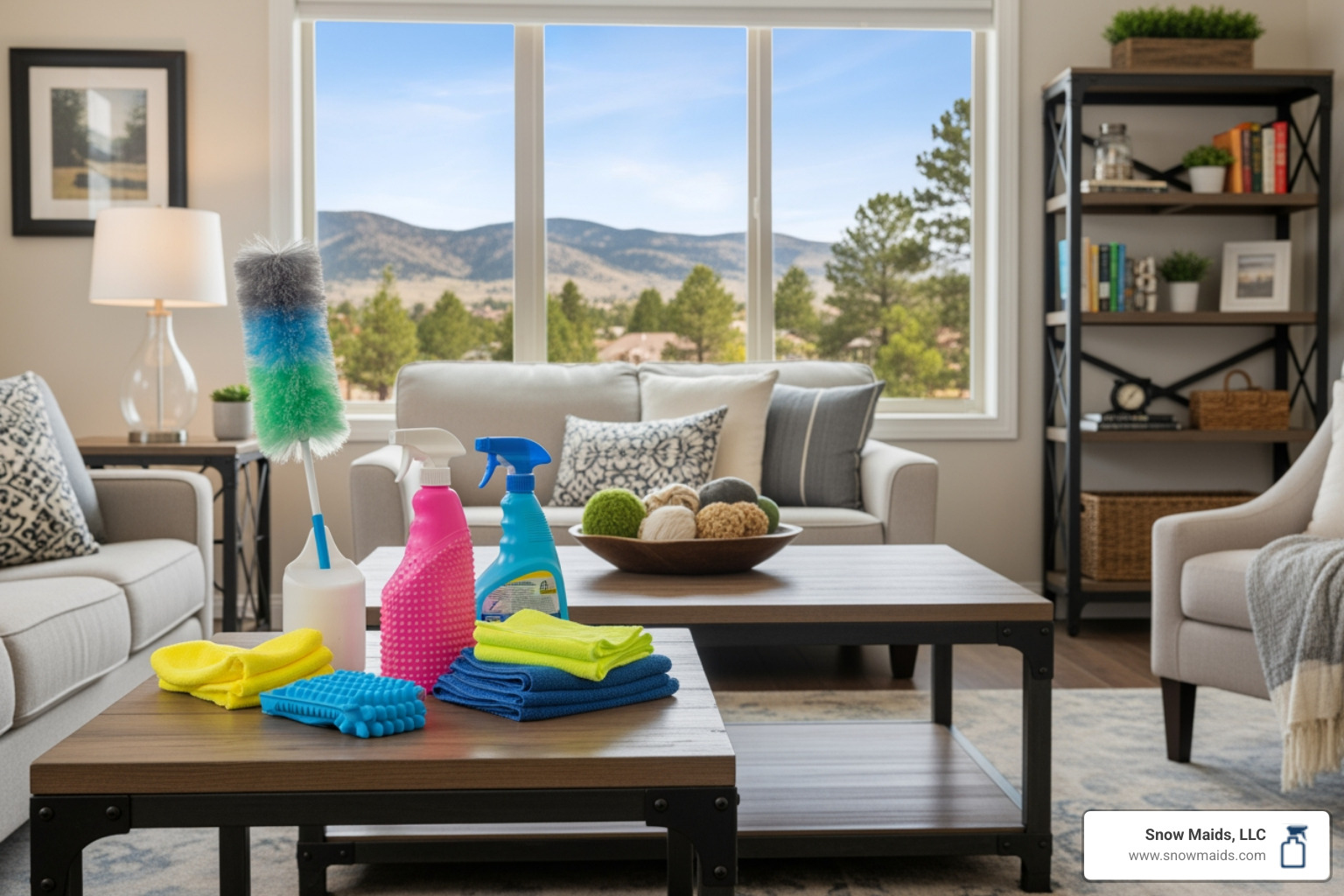
The Impact of Professional Cleaning on Asthma Management: Breathing Easier at Home
Living with asthma means constantly being aware of potential triggers in your environment. For many, the home, which should be a sanctuary, can unfortunately harbor common culprits that exacerbate symptoms and even lead to attacks. While medical management is crucial, creating a healthier indoor environment through effective cleaning is a powerful complementary strategy. But what kind of cleaning truly makes a difference, and can professional help really impact your asthma management?
This article explores the link between indoor air quality, common asthma triggers, and the specific ways professional cleaning services can help create a home environment that supports easier breathing.
The Hidden Triggers Lurking Indoors
Asthma symptoms like coughing, wheezing, and shortness of breath are often triggered by inhaling tiny particles or irritants in the air. Inside our homes, several common culprits can accumulate:
- Dust Mites: Microscopic creatures that thrive in warm, humid environments like bedding, upholstery, and carpets. Their waste products are a major allergen [4, 6].
- Mold Spores: Mold grows in damp areas (bathrooms, basements, leaky spots) and releases spores that can trigger asthma symptoms when inhaled [4, Enviropure Home].
- Pet Dander: Tiny flakes of skin shed by cats, dogs, and other animals. Dander is lightweight and stays airborne for extended periods [6].
- Pollen: While primarily an outdoor trigger, pollen can easily enter homes through windows, doors, and on clothing [6].
- Volatile Organic Compounds (VOCs): Gases emitted from certain cleaning products, paints, air fresheners, and building materials can irritate airways [4, Community AAFA].
- Pests: Cockroaches and rodents leave behind droppings and body parts that act as allergens [3, 6].
These triggers settle deep into surfaces, fabrics, and even circulate through your home's HVAC system, making them difficult to remove with just everyday cleaning.
Why Standard Cleaning Often Isn't Enough
Regular dusting, vacuuming, and wiping surfaces are essential for general hygiene, but they often fall short when it comes to significantly reducing asthma triggers.
- Stirring Up Allergens: Sweeping or using conventional vacuums without proper filtration can actually kick up settled allergens back into the air, making symptoms worse before they get better.
- Surface Level Only: Most triggers are embedded deep within carpets, upholstery, mattresses, and ductwork – areas that routine cleaning methods don't effectively reach.
- Limited Tools: Standard household cleaning tools lack the power and specialized filtration systems needed to capture the smallest, most problematic particles.
- Harsh Chemicals: Many common cleaning products contain VOCs or strong fragrances that can directly irritate sensitive airways [Community AAFA, Allergy Affiliates].
This is where professional cleaning services offer a distinct advantage.
The Professional Cleaning Advantage for Asthma Management
Professional cleaners have the expertise, equipment, and techniques specifically designed to tackle the hidden triggers that exacerbate asthma. Their approach goes beyond surface-level cleaning to truly improve indoor air quality.
Here's how professional cleaning methods align with recommendations for reducing indoor allergens and irritants:
- Deep Carpet and Upholstery Cleaning: Carpets and upholstered furniture are significant reservoirs for dust mites, pet dander, and pollen. Professional services often use hot water extraction (steam cleaning). This method uses high temperatures (often exceeding 130°F) which are effective at killing dust mites and removing allergens trapped deep within fibers, much more effectively than vacuuming alone [2, 7].
- HEPA Filtration: Professional-grade vacuums and air scrubbers are typically equipped with High-Efficiency Particulate Air (HEPA) filters. These filters are designed to capture at least 99.97% of particles 0.3 micrometers in diameter. This includes tiny allergens like dust mite waste, pet dander, mold spores, and pollen, preventing them from being recirculated into the air during cleaning [2].
- Targeted Mold and Moisture Control: Professionals are trained to identify areas prone to mold growth. They can safely and effectively clean or remediate mold colonies, addressing the source of this significant asthma trigger. They also understand the importance of controlling humidity and moisture.
- Air Duct Cleaning: Over time, dust, allergens (including pet dander and mold spores), and other debris can accumulate in your home's HVAC ducts. When the system runs, these particles can be blown throughout the house. Professional duct cleaning removes this buildup, improving overall air quality circulating in your home.
- Use of Asthma-Friendly Products: Reputable professional cleaning companies offer or use green-certified, unscented, or low-VOC cleaning solutions. These products clean effectively without releasing harsh chemicals or strong fragrances that can irritate sensitive respiratory systems, aligning with recommendations from allergy and asthma foundations [Community AAFA, Pure House Cleaning].
- Comprehensive and Detailed Cleaning: Professionals know the common hiding spots for allergens – from high shelves and ceiling fans to baseboards and blinds. Their systematic approach ensures that these often-missed areas are thoroughly cleaned.
The Benefits: Breathing Easier and Living Better
Reducing exposure to indoor asthma triggers through professional cleaning can lead to tangible improvements in asthma management:
- Reduced Symptoms: Lower levels of allergens mean fewer instances of coughing, wheezing, shortness of breath, and chest tightness.
- Fewer Attacks: Minimizing triggers can potentially decrease the frequency and severity of asthma exacerbations.
- Less Reliance on Medication: While professional cleaning is not a substitute for prescribed medication, reducing triggers may, in some cases and in consultation with a doctor, lead to less need for rescue inhalers.
- Improved Sleep: A cleaner indoor environment, especially in the bedroom where dust mites thrive, can contribute to better sleep quality.
- Enhanced Quality of Life: Breathing easier at home means more comfort, less anxiety about triggers, and greater ability to enjoy daily activities.
Consider that indoor air quality has become increasingly important, accounting for a significant portion of factors influencing asthma incidence [5]. Taking proactive steps to clean your indoor environment deeply is a vital part of a holistic asthma management plan.
Choosing an Asthma-Focused Professional Cleaner
If you're seeking professional cleaning specifically to help manage asthma symptoms, here's what to look for:
- Ask about their equipment: Do they use HEPA-filter vacuums?
- Inquire about their cleaning products: Do they offer green-certified, unscented, or low-VOC options?
- Understand their process: Do they include thorough dusting (with microfiber cloths that capture dust), vacuuming of all surfaces (including upholstery and stairs), and cleaning of high-reach areas?
- Ask about specialized services: Do they offer deep carpet cleaning or refer reputable duct cleaning services?
- Check for professionalism: Are they insured and bonded? Do their cleaners undergo background checks (like Snow Maids)? This provides peace of mind not just about cleaning quality but also about who is in your home.
A professional cleaning service, like Snow Maids, that understands the importance of creating a healthy indoor environment can be an invaluable partner in your asthma management strategy. They provide the thoroughness and specialized tools needed to tackle the triggers that everyday cleaning misses, allowing you to focus on living your life more fully and breathing more easily in your own home.
FAQs about Professional Cleaning and Asthma
Q: Can professional cleaning cure asthma?
A: No, professional cleaning cannot cure asthma. Asthma is a chronic respiratory condition. However, by significantly reducing indoor triggers like dust mites, pet dander, mold spores, and pollen, professional cleaning can help manage symptoms and potentially reduce the frequency and severity of attacks as part of an overall medical management plan.
Q: How often should I get professional cleaning for asthma relief?
A: The ideal frequency depends on various factors, including the severity of your asthma, the number of pets in your home, indoor humidity levels, and your budget. Many people benefit from a thorough deep clean initially, followed by regular maintenance cleaning (e.g., monthly or bi-weekly) focusing on allergen reduction. Deep carpet and upholstery cleaning might be recommended annually or semi-annually. Consult with your cleaning service to develop a schedule tailored to your needs.
Q: Are "green" cleaning products better for asthma?
A: Often, yes. Traditional cleaning products can contain Volatile Organic Compounds (VOCs) and strong fragrances that can irritate airways and trigger asthma symptoms in sensitive individuals [Community AAFA, Allergy Affiliates]. Green-certified, unscented, or low-VOC products are generally less likely to cause respiratory irritation, making them a preferred choice for homes with asthma sufferers.
Q: Does duct cleaning help with asthma?
A: If your air ducts have accumulated significant amounts of dust, allergens, and potentially mold, cleaning them can improve the air quality circulating throughout your home and reduce exposure to these triggers. While not a guaranteed fix for everyone, it can be a beneficial step, particularly if other allergen control measures aren't fully effective.
Q: What should I do before a professional cleaning if I have asthma?
A: It's helpful to discuss your specific concerns about asthma triggers with the cleaning service beforehand. If you are particularly sensitive, you might consider leaving the house during the cleaning process and allowing sufficient time for the air to clear afterward, especially if deep cleaning or strong products (even low-VOC ones can have a temporary scent) are used. Ensure proper ventilation during and after cleaning.


Customer Testimonials
"Katy is always amazing. Next time, however, I would prefer she knock on my office door to let me know she is ready to clean my office before she goes. Thank you!"
"Amazed by their service! House looked amazing and immediately planned on scheduling a future cleaning. Estimate process and scheduling was very easy - they were available quickly to do a deep clean. You can tell they put effort into their work and the results showed. Thanks so much for a clean house!"
"Did a deep clean with Snow Maids and it was amazing sight to come home to. Can't wait to have them clean our home regularly to keep up with the day to day grind. Their team did a great job and worth it so much!"















